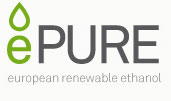 The association which represents European ethanol producers is requesting that the European Commission take action “against unfair imports of fuel ethanol from the United States.”
The association which represents European ethanol producers is requesting that the European Commission take action “against unfair imports of fuel ethanol from the United States.”
ePure claims that U.S. ethanol policy has encouraged production to the point that it can be sold at much lower prices on the world market. “Massive and sudden imports of US ethanol, combined with unfairly low prices over the last few years, have seriously damaged the economic situation of European producers” said ePure Secretary-General Rob Vierhout. “The unfair competition of US imports is simply depriving the EU industry from the benefit of this positive evolution on its own domestic market.”
According to the Renewable Fuels Association, ePure is specifically alleging that international ethanol traders were exporting E90 (90 percent ethanol blends) to Europe to take advantage of the European Union’s (EU) lower tariff on such blends as well as the $0.45 per gallon tax credit (VEETC) for ethanol blending in the U.S.
The RFA disputes the allegations. “Moreover, the U.S. ethanol tax incentive that lies at the root of the European allegations will expire at the end of 2011, rendering the tax incentive portion of the alleged trading impossible in the future. Importantly, domestic ethanol producers are not eligible for the tax incentive referenced by the Europeans. That tax incentive is specifically made available to gasoline blenders, marketers, and other end users. Therefore, U.S ethanol producers cannot nor should not be the focus of any potential European action.” The bigger issue, notes RFA, is the EU tariff schedule that encourages the import of E90 blends by classifying them at a lower tariff rate than other ethanol imports.
RFA says U.S. ethanol “remains the lowest cost, most cost effective ethanol in the market today. This fact has led to a surge in U.S. ethanol exports to Brazil, Europe, Asia, and the Middle East.”
The U.S. has become a net exporter of ethanol since the beginning of 2009 and exports continue to increase at a rapid pace. The latest reported figures for August from the Energy Information Administration showed 456,000 gallons of imports versus export demand of 52.3 million gallons. Through August, net exports are running at about 15.2 million barrels and are on pace to be double last year.

